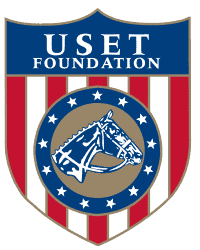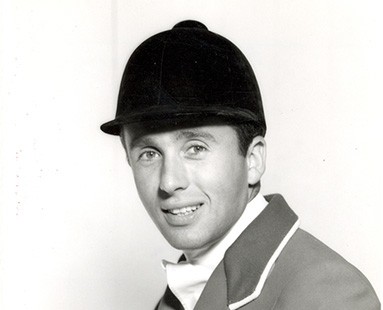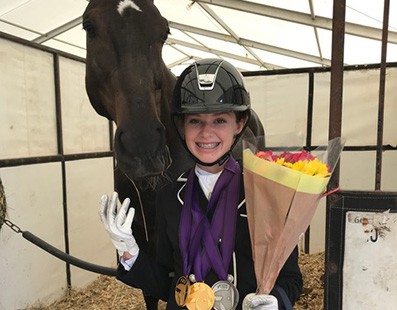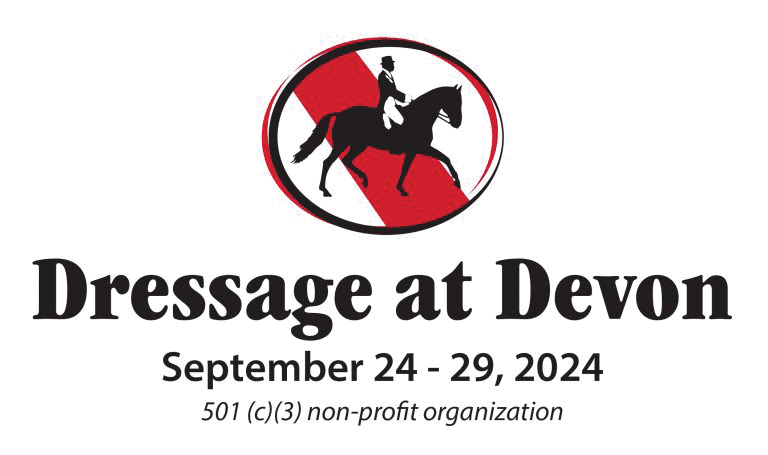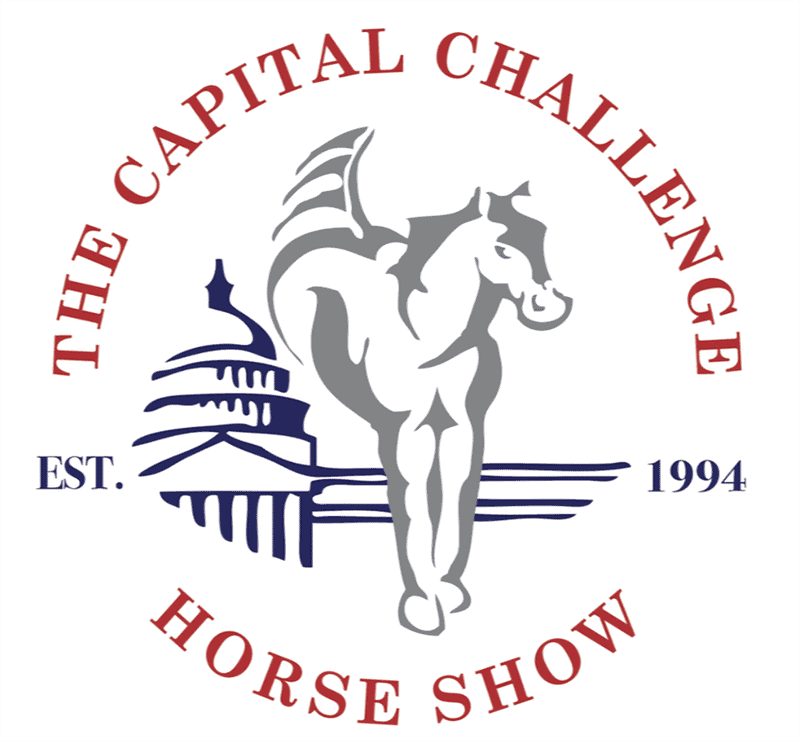Once the world’s top female endurance racecar driver, Liz Halliday-Sharp is now steering toward a new career goal: competing for the U.S. Equestrian Team in the 2021 Olympics.
Many of us fantasize about competing at the elite level of an international sport. With enough sweat, grit and determination, a select few might even make it onto the podium.
But finding success at two international sports? Nearly unheard of. Yet Liz Halliday-Sharp has done just that. For more than a decade, Liz balanced two high-pressure, grueling pursuits — High Performance equestrian eventing and endurance motor racing — and became one of the best in the world at both.
“I’m quite busy in my brain,” Liz says. “I like to have things that push me to go fast and think fast, so both sports suit me really well.”
Since retiring from competitive motorsports in 2008, Liz has turned her attention to eventing full-time. She’s appeared on several Nations Cup teams and served as the reserve rider for Team USA at the 2018 World Equestrian Games and the 2019 Pan American Games.
Now, Liz and her husband, Al, are relocating to Lexington, Ky., and working to make Liz’s next dream a reality: a spot on the 2021 U.S. Olympic eventing team.
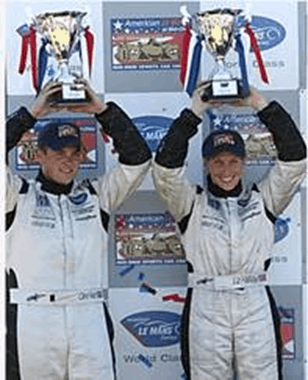
Liz Halliday-Sharp; A Family Legacy
Liz, 41, started riding at 8 years old in her hometown of San Diego, Calif. She was drawn to high-intensity, adrenaline-pumping pursuits, so when she turned 16 and got her driver’s license, she instantly fell in love with the world of motorsports.
Driving was about more than just excitement; it was a chance for Liz to bond with her dad, a longtime coach and mentor to young racers. She began driving her father’s “little old historic car” and then set off to compete in her first 24 Hours of Le Mans, a brutal test of endurance in which a team of 3-4 drivers race for 24 straight hours at speeds upward of 200 mph.
Ultimately, Liz would become the most successful American female driver in the history of the American Le Mans Series races. All the while, she was also competing as a five-star eventer at some of the most prestigious courses in the world.
“I was young and single and I just lived on a horse or on a plane or in a car,” Liz says. “It was amazing. Some of the best years of my life.”
But when the financial crisis hit, Liz’s sponsors pulled out of their sporting commitments. Her father fell ill and couldn’t come out to watch her race. Liz decided it was time to move on.
“I reached a point one day where I was like, ‘What are we doing? This is insane.’ And I just dropped it cold turkey. I never renewed my racing license,” says Liz. “I thought, ‘I have to stop. I can’t do it halfway. I’m either doing it or I’m not.’”
Complementary Skills
For more than a decade, Liz has focused exclusively on eventing, but she still draws comparisons between her current sport and her previous pursuit.
“Both sports are very much full-bodied physical sports and require fast hand-eye coordination,” Liz explains. “Just like you wouldn’t ride to every cross-country fence the same way, you couldn’t drive into every corner at the same speed.”
Though both sports are strenuous, Liz says she finds eventing a bit less taxing. “Some days when it’s really, really hot and I’m competing all day, I think to myself, ‘Well, I could be in a three-layer driving suit with a balaclava and a helmet on, in a heat box of a racecar for three hours,’” she says with a laugh. “[Eventing] is not as bad.”
Endurance racing gave Liz insight into the power — and pressures — of teamwork.
“In racing, I was always part of a team with a few other drivers, and you’re under a huge amount of pressure to carry that weight for the team,” Liz says. “You’re always up against the gun to put the right time in.
“I like to think all those years of working with a team will hopefully make me a good team rider. I’m hoping it’ll all help me win a team medal for the United States.”
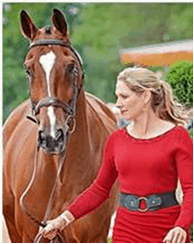
Taking the Next Steps
Assessing her stable of horses, Liz thinks Deniro Z, a 12-year-old Dutch Warmblood gelding, is a potential contender for the Tokyo Games. But she would have had to sell Deniro if not for the financial support she’s received from a group of owners who believe in her.
Even for a successful athlete like Liz, the economics of equestrian sport can quickly become prohibitive without the assistance of caring supporters like you.
“I’m not going to say I’ve managed it 100 percent off my own back,” she says. “I don’t think that I could have, to be honest. And I think a lot of riders would attest to that. It’s very difficult to do [this sport] from nothing.”
As Liz transitions to her new facility in Lexington after 20 years in England, she feels confident that the move will allow her to develop a stronger presence in the U.S. and — if all goes well — get her one step closer to fulfilling her Olympic dream.
